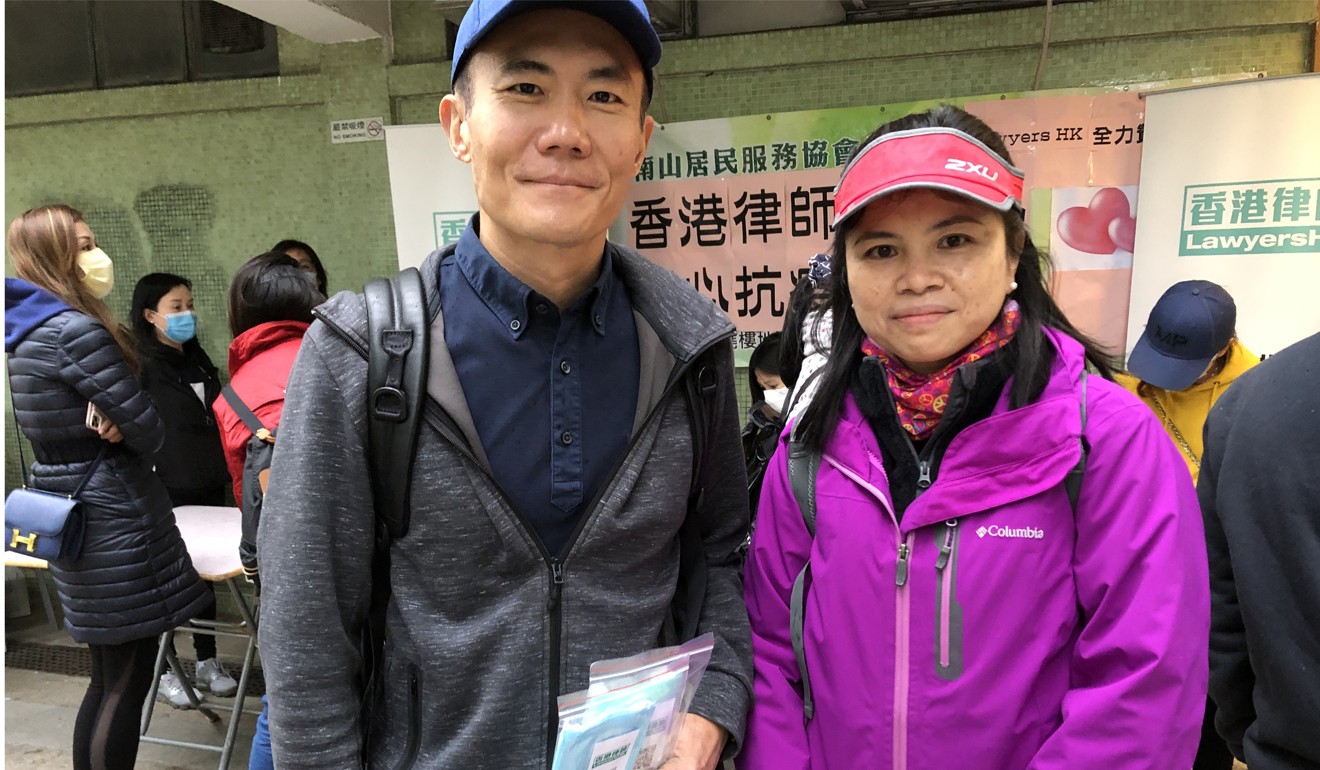
Coronavirus: judiciary moves to reduce growing case backlog, but offers no date for court hearings to resume
- Judges will be allowed to ‘proactively manage’ cases, issuing directives to involved parties outside the courtroom
- Only the most urgent applications have been heard since coronavirus fears caused most hearings to be adjourned on January 29
Hong Kong courts on Friday introduced measures aimed at reducing a growing backlog of cases, even as it pushed back the reopening of courtrooms shuttered during the coronavirus epidemic.
In a press release, the judiciary said most hearings at all levels would be further adjourned to a date yet to be fixed, despite recent calls for clarity on that date from the city’s lawyers groups.
“The judiciary recognises the impact it has on the daily operation and businesses of the courts, and the concerns it may have caused for court users and the public,” the statement read, saying they sought to “strike a careful balance” between public health and the administration of justice.
In a bid to reduce the backlog of cases, the judiciary said judges would “proactively manage” both civil and criminal cases taking place during the adjournment by issuing directives to the involved parties outside the courtroom.

In civil cases, some hearings will be settled by paper, while there will be a limited use of electronic means to handle the circulation of court documents in urgent cases.
While saying it was “actively preparing for the resumption” of hearings, the judiciary did not state the criteria under which courts could be reopened.
On January 29, the judiciary adjourned most hearings until at least the end of February. Only the most urgent applications, including new arrests, time-sensitive injunctions and bail requests, have been heard since.
While the judiciary has provided no estimate of the scope of the current backlog, its own most recently available figures show the Court of First Instance alone receiving an average 1,700 cases a month – as of September 19 – a number that does not include procedural or estate hearings.
British judge’s high-profile sittings join backlog of cases created by court closures
Both the Hong Kong Bar Association and Hong Kong Law Society, which represent about 1,400 barristers and 10,000 solicitors respectively, have raised concerns about the growing backlog.
Bar Association chairman Philip Dykes SC told the Post on Thursday that his organisation, which, along with the Law Society, met with the judiciary on Tuesday, understood the decision would ultimately come down to public health concerns.
But an “end point” for the closure, he said, would give a sense of certainty to the entire profession as well as litigants.
The Law Society, meanwhile, welcomed Friday’s announcement, but also urged the judiciary to “consider a longer term contingency plan to handle the situation” if the epidemic continues.
“The Law Society agrees with everyone in Hong Kong that public health and infection control should be made the top priority. Nevertheless, the public’s needs which are equally important must also not be ignored and a right balance must be struck,” it said in a statement.
The decision to close the courts has drawn comparisons with the judiciary in Singapore, where cases have continued to be heard amid the virus outbreak, and even Hong Kong’s own precedent – courts remained open during the 2003 Sars epidemic.
The Bar Association and Law Society have additionally both called for more cases to be settled on paper without the need for a hearing.
Legal sector lawmaker Dennis Kwok of the pro-democracy Civic Party said poor use of technology had contributed to the lengthy suspension.
Kwok said courts in Singapore had been using an electronic system for filing documents for the past 15 years and remained in operation amid the epidemic.
“On such simple matters, you can see courts in Hong Kong are seriously lagging behind,” Kwok said.
“This time, I have to condemn the judiciary for realising this slowly.”
He went on to suggest judges prolong their work hours when courts resume, attending two full sessions a day, adding that some criminal defendants may spend longer in custody than they would have had their cases gone to court.
Hong Kong’s dependence on the physical filing of legal documents has long been a point of contention with the city’s lawyers. In December, the judiciary tabled a bill to allow electronic filing and sealing, a move that would mimic current practise in Singapore and the United States, but lawmakers have not yet had a chance to approve the change.
Hong Kong judiciary moves a step closer to becoming paperless
Commercial litigation lawyer May Ng, a partner in a global law firm, said while she understood the rationale for closing the city’s courtrooms, there had been an inevitable impact on the profession.
In one multimillion dollar dispute her firm is handling, a rival party failed to respond before deadline, she said. In normal circumstances, that would give her client the clear upper hand and allow the firm to apply for a judgment in her side’s favour.
“Because the court registry is closed and there’s no electronic filing … I can’t apply for a default judgment,” Ng said.
“If you have an e-filing system, all this would be business as usual. It’s a good time for the judiciary to go into e-filing, because a lot of jurisdictions like Singapore, Britain, and the US have it.”
But Dykes said a law allowing electronic filing would have little impact on criminal courts, where there are limitations on what can be settled without a hearing.
Criminal trials require public access,” he said. “You maybe able to take procedural short-cuts for civil cases, you can’t necessarily do that in criminal cases.”

